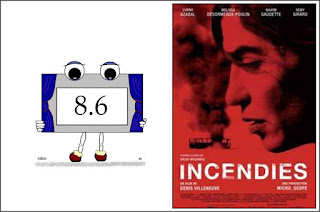Demoiselles de Rochefort (les)
English title: Young Girls of Rochefort (The)
Genre: musical
With: Catherine Deneuve (Delphine Garnier), Françoise Dorléac (her sister Solange), Danielle Darrieux (Yvonne, their mother), George Chakiris (Étienne), Grover Dale (Bill), Jacques Perrin (Maxence), Michel Piccoli (Simon Dame), Jacques Riberolles (Guillaume Lancien), Gene Kelly (Andy Miller)
Director: Jacques Demy
Screenplay, dialogues and songs: Jacques Demy
Music: Michel Legrand
Release: 1967
Studio: Madeleine Films, Parc Film
Rating: G
MBiS score: 8.5/10
‟We all seek our feminine ideal. He's not the only one.”
QuickView
Story-line: in Rochefort, a French town known mostly for its naval base, several people have reached a new chapter in their lives. The Garnier sisters are determined to leave for Paris to pursue artistic careers, their mother Yvonne is tired of slaving at a local café, Maxence is eager to quit the Navy and all of them – not to mention several other characters – are searching for a love that has escaped them so far. Meanwhile, a travelling fun fair is setting up in town and two of its carnies, Bill and Étienne, are very keen on meeting the locals…
Pluses: splendid performances from a sterling cast of actors and dancers (even the lip-synching is utterly convincing), Jacques Demy’s admirable helming, whimsical screenplay and great songwriting, Norman Maen’s lively modern dance numbers and Gene Kelly’s marvellous moves, those lovely, colour-coded costumes and sets (pastel fire hydrants!), Ghislain Cloquet’s aesthetic camera work and the film’s joyous, sunny production values.
Minuses: ‟The Young Ladies of Rochefort” would have been a better title since Delphine and Solange are certainly not schoolgirls. Michel Legrand’s jazzy score, although energetic, is sometimes loud and uninspired in comparison to his other, superior compositions for film.
Comments: this strong picture brings back memories of WEST SIDE STORY – that masterpiece in which George Chakiris also starred – and LES PARAPLUIES DE CHERBOURG, Jacques Demy’s greatest cinematic achievement. In Rochefort, every piece of news, even sad or disquieting, is fodder for song and dance. Also for movie buffs, a rare opportunity to see Catherine Deneuve play alongside her sister Françoise, who passed away the same year this movie was released.
MBiS
© 2019 – All rights reserved










